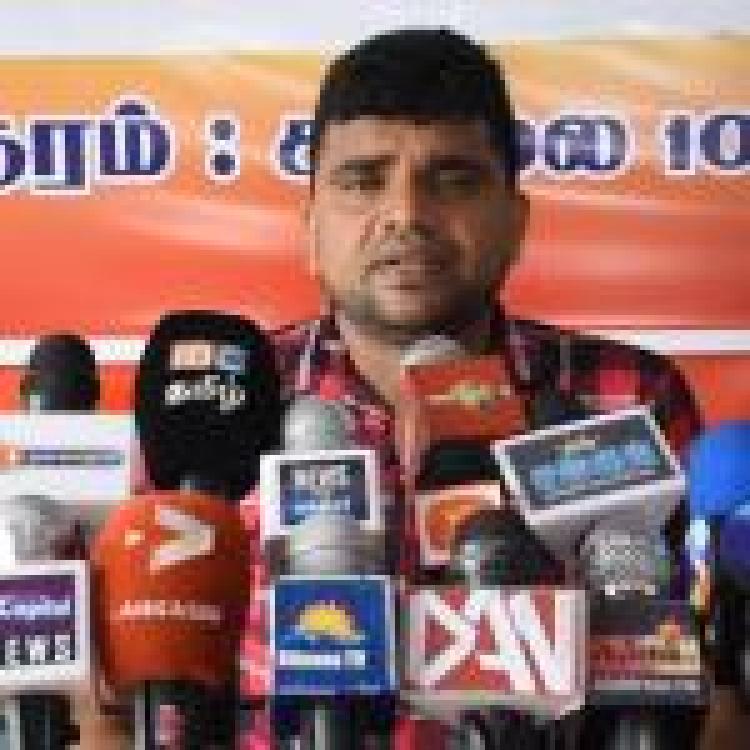.jpeg)
Amid heavy rains, Eelam Tamil farmers from Manthai West gathered in protest last week, demanding the return of their ancestral lands, which are at risk of colonisation from Sinhala settlers.
These lands, particularly the Cholamandala Pond land in Iluppaikadavi, under the Manthai West Divisional Secretary Division, have been cultivated by Tamil farmers for over 30 years, and now face the threat of losing them to external settlers.
On Thursday dozens of farmers braved the rain to assert their rights to continue farming these lands. Organized by the Federation of Community Based Organizations and led by union president V. S. Sivakaran, the protest drew significant attention. Among the participants was prominent human rights activist Reverend S. Jayapalan Adikalar. Protesters carried banners with slogans like "Are government officials aligned with land mafias?", "Don’t deceive the poor farmers", and "How can our land be given to outsiders and people from Colombo?"
.jpeg)
The farmers allege that despite their decades-long cultivation, authorities have granted land rights to settlers from outside the North-East, leaving them without formal land documentation. Despite numerous meetings and petitions to local authorities, including lists of farmers eligible for land rights submitted to the Divisional Secretary, no resolution has been achieved. Union president Sivakaran expressed the frustration of the local farmers, noting that despite over 30 years of cultivation, they lack legal documents for their land. "Despite writing to four presidents, no action has been taken," he lamented.
A decision had been reached at a previous meeting at the President's Secretariat to allocate 200 acres of the 250-acre land to 100 local farmers (each receiving two acres), with the remaining 50 acres designated for 10 settlers from outside the district. However, the local Department has refused to grant permission to implement this agreement, placing the livelihoods of the farmers at risk as the new cultivation season approaches. The farmers questioned why the land had to be given to those outside of the district and given the long-standing nature of the issue, why the government has not sough to resolve the matter.
Earlier in June this year, the same organization sent a letter to then-President Ranil Wickremesinghe, requesting the release of these lands to Tamil farmers so they could cultivate without fear.
.jpeg)
Despite more than 15 years that have passed since the Mullivaikkal genocide and the end of Sri Lanka's armed conflict, the Sri Lankan government and armed forces continue to occupy large portions of land historically belonging to the Tamil people, exacerbating tensions and hindering the region's recovery.
.jpeg)

